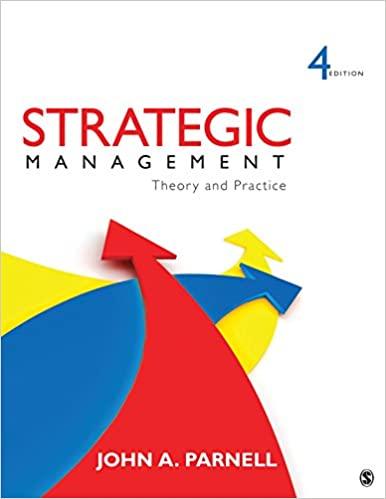Question
Case Study 1: Financial Statements Income Statement - End of Year Operating Revenue Net Patient Service Revenue $ 1,650,000 Other Revenue 70,000 Total Operating Revenue
Case Study 1: Financial Statements
Income Statement - End of Year
Operating Revenue
Net Patient Service Revenue $ 1,650,000
Other Revenue 70,000
Total Operating Revenue 1,720,000
Operating Expenses
Salary, Wages, & Fringe Benefits 1,292,000
Provision for Bad Debts 50,000
Depreciation 12,000
Other Expenses 80,000
Total Operating Expenses 1,434,000
Income (loss) from operation $ 286,000
Non-Operating Gains (losses)
Total Non-operating Gains (losses) 44,000
Net Income / (Loss) $ 330,000
Balance Sheet - End of Year
Assets:
Cash and cash equivalents $ 10,000
Patient Accounts Receivable 800,000
Prepaid Expenses 5,000
Total Current Assets 815,000
Property, Plant & Equipment 96,000
Total Non- Current Assets 96,000
Total Assets $ 911,000
Liabilities and Equity: Accounts Payable and accrued expenses 145,000
Total Current Liabilities 145,000
Long-term Debt 320,000
Total Non-Current Liabilities 320,000
Unrestricted net assets 446,000
Total Equity 446,000
Total Liabilities and Equity $ 911,000
Financial Indicators:
Working Capital $ 670,000
Current Ratio 5.6
Days in Patient A/R 177.0
Days Cash on Hand 2.6
Other Metrics:
Unbilled A/R $ 566,250
% in A/R more than 90 days 21%
This medical practice has five physician partners and a good income statement (it is profitable). The practice's policy is to pay bonuses to the partners if there is a cash surplus at the end of the year. It pays up to a total of $300,000 in shared bonuses annually (each doctor would earn up to $60,000). However, at the end of the year, despite higher revenue than expenses, there is little cash surplus. The Practice plans to collect $7,000 per day. If you were the managing partner, what would be the plan?
Summarize the information shown on the financial statement for CS #1. How much of the bonus can the practice pay right now? How long will the MDs have to wait to receive their bonus in full? What could be done to shorten the time period? What metrics are impeding cash flow? How did you arrive at the conclusion from review of the financial statement?
Step by Step Solution
There are 3 Steps involved in it
Step: 1

Get Instant Access to Expert-Tailored Solutions
See step-by-step solutions with expert insights and AI powered tools for academic success
Step: 2

Step: 3

Ace Your Homework with AI
Get the answers you need in no time with our AI-driven, step-by-step assistance
Get Started


